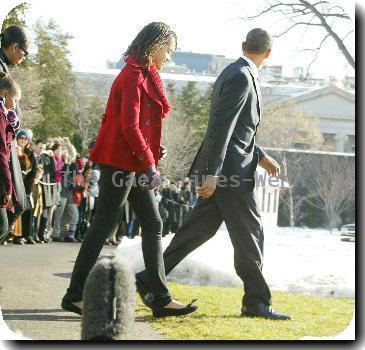EU to pursue climate deal through G-20 after disappointments at Copenhagen summit
By Robert Wielaard, APFriday, January 8, 2010
EU to pursue climate deal through G-20
MADRID — The EU said Friday it will pursue a new deal on global warming through the Group of 20, since last month’s U.N. climate conference of nearly 200 nations led to unwieldy negotiations that didn’t accomplish much.
Herman van Rompuy, the new EU president, said halting global warming remains a key target for the Europeans whose proposal for ambitious pollution cuts by 2020 found no takers at the December climate conference in Copenhagen.
“The European Union must continue to be the driving force” of the global climate change debate, said Van Rompuy. The EU leaders will meet Feb. 11 to discuss where to go next.
Van Rompuy spoke in Madrid, where he was meeting with the bloc’s two other top executives: Spanish Prime Minister Jose Luis Rodriguez Zapatero, who is assuming the rotating EU presidency, and Jose Manuel Barroso, the European Commission chief.
“We need to change our negotiating strategy,” Spanish Minister of Foreign Affairs Miguel Angel Moratinos said. He did not elaborate, but Spanish officials said the EU is keen to pursue a climate deal through the G-20, rather than the United Nations.
A senior EU official also said such a summit could produce a meaningful agreement, without having heads of state meet through the night to bicker over the wording of such a deal, as they did in Copenhagen. The official spoke on condition of anonymity because he said such a move is still being debated by the bloc.
The Group of 20 is an international body that meets to discuss economic issues. Its members — 19 countries with some of the world’s biggest industrial and emerging economies, plus the European Union — represent about 90 percent of the world’s gross national product, 80 percent of world trade and two-thirds of the global population.
During the two-week negotiating marathon in Copenhagen, the 193-nation U.N. conference on climate change ignored European pleas for robust pollution cuts.
Instead, an agreement brokered by President Barack Obama with China and a handful of emerging economies sets up the first significant program of climate aid to poorer nations. It urges deeper cuts in emissions of carbon dioxide and other gases blamed for global warming, but does nothing to demand them. That will now be subject to continuing U.N. talks later this year in Mexico City.
Van Rompuy said globalization is crafting a new world order. “There is an awareness that after Copenhagen things have changed. The balance of power has shifted,” he said.
Some wonder if that shift toward such emerging economies as China, Brazil and India is gutting the trans-Atlantic relationship that was the bedrock of international relations during the Cold War and its immediate aftermath.
“Can we still come to major global agreements? If not in climate issues — where there is a broad consensus that doing nothing spells disaster for mankind — then where?” asked Guy Verhofstadt, a former Belgian premier who now heads the Liberals in the European Parliament.
Some believe the climate change differences between the EU and the United States will damage the trans-Atlantic relationship just as the collapse of world trade talks did in 2008.
In Copenhagen, the EU sounded smug about its own ambitious targets: cutting greenhouse gas emissions by 20 percent by 2020 from 1990 levels. This found no echo with Obama, who faces a reticent U.S. Congress and political priorities topped by terrorism, the war Afghanistan, job creation and economic recovery.
Heather Conley, head of the Europe Program at Washington’s Center for Strategic and International Relations, said Europeans will be more successful in climate talks if they appreciate the Obama administration’s priorities a little better.
“The Europeans should focus the conversation on the economic issues of climate change, the green jobs, the recovery,” she said. ” That will be a much better, more persuasive way to get Washington in line.”
Tags: Barack Obama, Climate, Copenhagen, Denmark, Environmental Concerns, Europe, Events, Madrid, North America, Spain, Summits, United Nations Climate Change Conference 2009, United States, Western Europe



